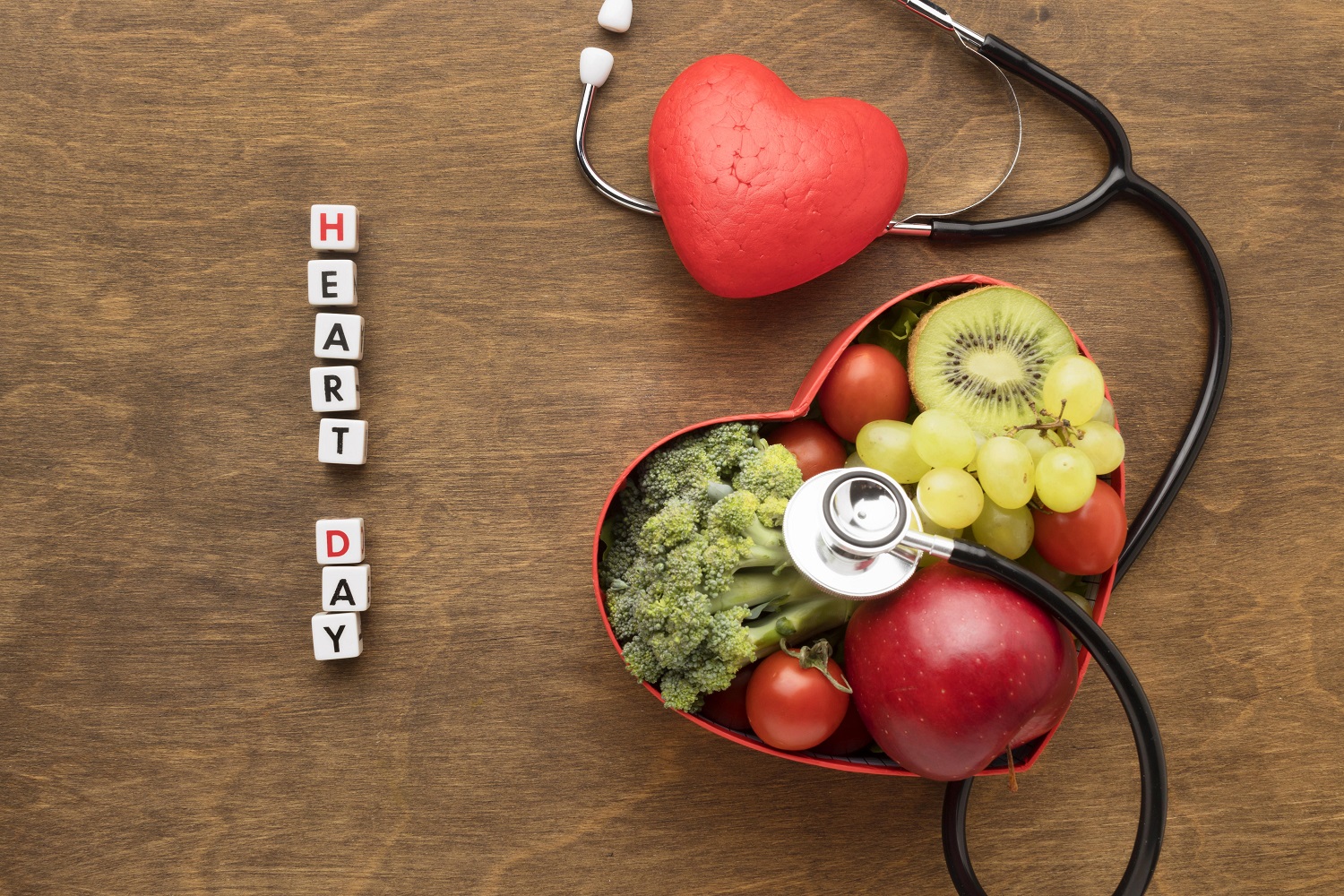Achieving a healthy weight is crucial for maintaining optimal heart health. Excess weight can strain the heart, leading to various cardiovascular issues such as high blood pressure, high cholesterol, and increased risk of heart disease. Embracing a heart-healthy weight loss diet helps shed those extra pounds and significantly improves overall cardiovascular health.
You’re taking control of your health and well-being by choosing a heart-healthy weight-loss diet. This diet focuses on nutrient-rich foods that support your cardiovascular system while helping you achieve your weight loss goals. Here’s your ultimate guide to a heart-healthy weight loss diet, focusing on what to eat and avoid to support cardio health weight loss.
The journey to a healthier heart and leaner body is rewarding and filled with the satisfaction of making positive lifestyle changes. Incorporating the right foods into your diet and avoiding harmful ones can enhance your health, reduce the risk of heart disease, and improve your overall well-being. This guide will provide comprehensive insights into the foods that can aid in heart health and weight loss and those you should avoid.
Foods to Eat
- Fruits and Vegetables: Packed with vitamins, minerals, and fiber, fruits and vegetables are essential for a heart-healthy weight-loss diet. Aim for a variety of colors to ensure a range of nutrients.
- Whole Grains: Whole grains like oats, quinoa, and brown rice are excellent sources of fiber, which helps reduce cholesterol levels and promotes satiety.
- Lean Proteins: Include sources like chicken, turkey, fish, beans, and legumes. Fish, especially fatty fish like salmon and mackerel, are high in omega-3 fatty acids, beneficial for heart health.
- Nuts and Seeds: Almonds, walnuts, chia seeds, and flaxseeds provide healthy fats and fiber, contributing to heart health and weight management.
- Healthy Fats: Olive oil, avocado, and nuts contain monounsaturated and polyunsaturated fats, which are heart-friendly and help in weight loss for heart health.
- Low-Fat Dairy: Choose low-fat or fat-free dairy products to obtain essential nutrients like calcium and protein without the added saturated fat.
Foods to Avoid
- Processed Foods: High in trans fats, sodium, and added sugars, processed foods can negatively impact heart health and contribute to weight gain.
- Sugary Beverages: Sodas, sweetened teas, and energy drinks are high in empty calories and sugars, leading to weight gain and increased risk of heart disease.
- Refined Grains: White bread, pasta, and pastries can increase blood sugar and contribute to weight gain. Opt for whole grains instead.
- Red and Processed Meats: Limit intake of red meats and avoid processed meats like sausages and bacon in unhealthy fats and sodium.
- High-Sodium Foods: To prevent high blood pressure, reduce your consumption of high-sodium foods like canned soups, salted snacks, and fast food.
- Full-Fat Dairy: Full-fat milk, cheese, and butter contain saturated fats that can raise cholesterol levels and negatively impact heart health.
Benefits of a Heart Healthy Weight Loss Diet
- Reduced Risk of Heart Disease: A heart-healthy diet helps reduce the risk of heart disease by lowering cholesterol levels, blood pressure, and inflammation.
- Improved Blood Pressure: Eating a diet rich in fruits, vegetables, whole grains, and lean proteins can help maintain healthy blood pressure levels.
- Better Cholesterol Levels: Consuming healthy fats and avoiding trans fats can improve cholesterol levels, reducing the risk of heart attacks and strokes.
- Enhanced Energy Levels: Nutrient-dense foods provide sustained energy, helping you stay active and maintain a healthy weight.
- Weight Management: A balanced diet aids in weight loss and maintenance, reducing the strain on your heart and improving overall health.
Incorporating Exercise for Optimal Heart Health
In addition to a heart-healthy weight-loss diet, regular physical activity is not just important; it’s crucial for optimal cardiovascular health. Exercise is a commitment to your health that helps:
- Burn Calories: Physical activities like walking, jogging, swimming, or cycling help burn calories and support weight loss efforts.
- Strengthen the Heart: Regular exercise strengthens the heart muscle, improving efficiency and reducing the risk of heart disease.
- Improve Circulation: Physical activity enhances blood circulation, vital for delivering oxygen and nutrients to tissues and organs.
- Lower Blood Pressure: Consistent exercise helps maintain healthy blood pressure levels, reducing the risk of hypertension.
- Boost Mood and Energy: Exercise releases endorphins, which improve mood and energy levels, making it easier to stick to a heart-healthy lifestyle.
Conclusion
While a heart-healthy weight loss diet can be beneficial, it’s essential to be mindful of potential risks. Rapid weight loss or extreme dietary changes can lead to nutrient deficiencies or other health issues. It’s crucial to consult a healthcare professional before making significant changes to your diet or exercise routine. By focusing on fruits, vegetables, whole grains, lean proteins, and healthy fats, you can achieve your weight loss goals and improve your heart health.
Ready to start your journey towards a healthier heart and weight? Contact us at myW8 to learn more about our personalized weight loss programs for optimal heart health.
For more detailed guidance and a customized plan, visit myW8.



